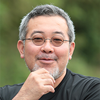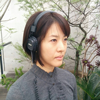TURN Meetings is an open forum for sharing TURN and exchanging ideas and opinions. At the meetings, participating artists and those involved in TURN projects, including members of facilities supporting people with disabilities, communities, and other locations where interaction is carried out, will meet and speak about/discuss TURN from their respective points of view.
The second meeting, to be held on Sunday, October 8, is titled “TURN Review I.” Here we will review from various angles the projects “TURN FES 3” and “TURN in BIENALSUR,” which were carried out in the first half of the year, through videos, photo materials, comments from those involved and so on. Together with our guests, artist Hiroshi Fuji and curator Miyuki Tanaka, we will look at TURN in a new light through cases studies from different locations in Japan and other countries and through exchanges of ideas and opinions.
*Sign language and speech-to-text support available.
*This event will be conducted in Japanese.
13:30
Door opens; admission
14:00-14:10
Opening remarks
14:10-14:40
Part 1: Review of TURN FES 3
14:40-15:40
Part 2: Review of TURN in BIENALSUR
(15:40-15:50 Break)
15:50-17:20
Part 3: Guest speeches, interactive discussion, Q and A
17:20-17:30
Closing remarks
[Guests]

Hiroshi Fuji
Born in Kagoshima Prefecture in 1960. Resides in Fukuoka Prefecture and Akita Prefecture.
Artist; vice-president and professor, Akita University of Art
Because his parents were born in Amami Oshima, Fuji grew up playing around the famous Oshima Tsumugi textiles. Having immersed himself in theater while a student at Kyoto City University of Arts, he aspired to do creative work based in regional communities, and explored project-style expression on site in various locations. After completing a graduate course at the same university, he taught at the National Arts School in Papua New Guinea, where he encountered primitive expression and sociology. In the period following the end of Japan’s economic bubble, Fuji worked in a redevelopment agency and an urban planning office where he learned about regional areas and large cities. He has carried out “dialogue and regional experimentation” through demonstration-style artistic expression making use of “community resources/appropriate technology/cooperative relationships.”

Miyuki Tanaka
Miyuki Tanaka became an independent curator/producer/editor after holding posts at 21_21 DESIGN SIGHT, Yamaguchi Center for Arts and Media (YCAM), and Miraikan, where she was involved in planning exhibitions and performances and editing publications. In recent years , she has been engaged in activities with the theme “To think about disabilities is to think about the world anew.” Tanaka plans projects that transcend categories. Major projects related to disabilities include the exhibition “bones” (2009, 21_21 DESIGN SIGHT), “Prosthetic Fashion Show” and “‘subliminal wave of light’ otto & orabu x Masakatsu Takagi LIVE at Miraikan” (both 2014, Miraikan), editing the book documenting the exhibition “Disability (TBD)” (2016, Tomonotsu Museum), “Japan Foundation – Disability x Performing Arts Series ‘dialogue without vision’” (2016, KAAT – Kanagawa Arts Theatre), the exhibition “The Great Ordinary” (2017, Borderless Art Museum NO-MA), and “Creative Audio Description” (2017, KAAT – Kanagawa Arts Theatre). Currently she is making the film “Night Cruising.” She is also planning the “All Light/Right Fashion Show,” to be held in Okayama in November.
*Guests and program content are subject to change.
Free
*Advance reservation not required.
Project Coordination Division
Arts Council Tokyo (Tokyo Metropolitan Foundation for History and Culture)
TEL: 03-6256-8435(10:00-18:00 Excluding weekends and holidays)
E-mail: info@turn-project.com
Sunday, October 8 2017, 14:00-17:30 (Doors open at 13:30)
Building V of the Faculty of Music, Room #401 , Tokyo University of the Arts (12-8 Ueno Park, Taito-ku, Tokyo)